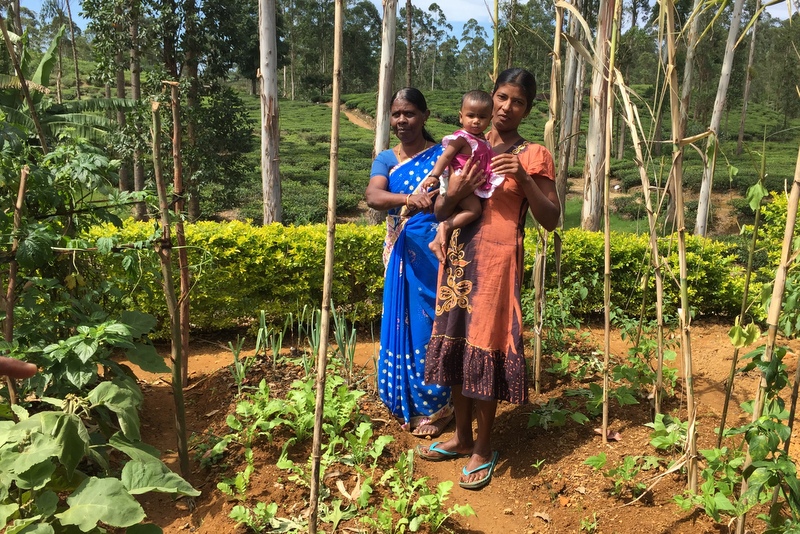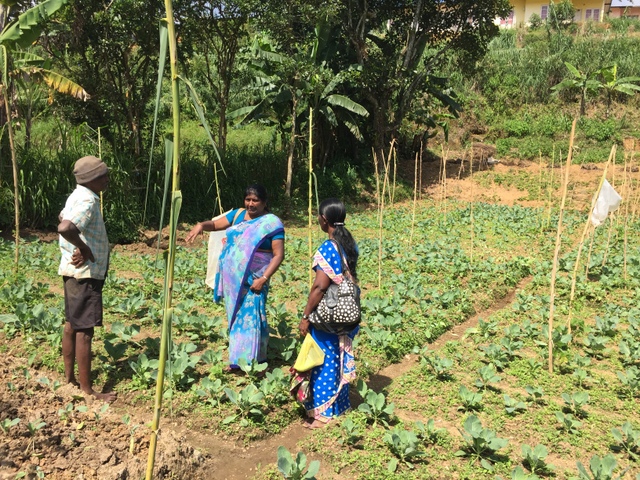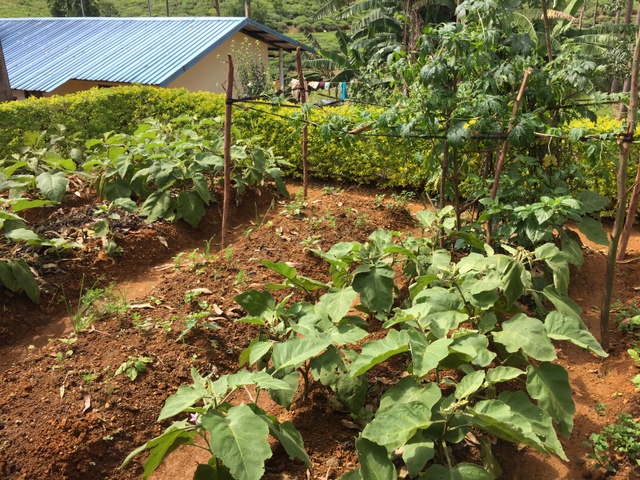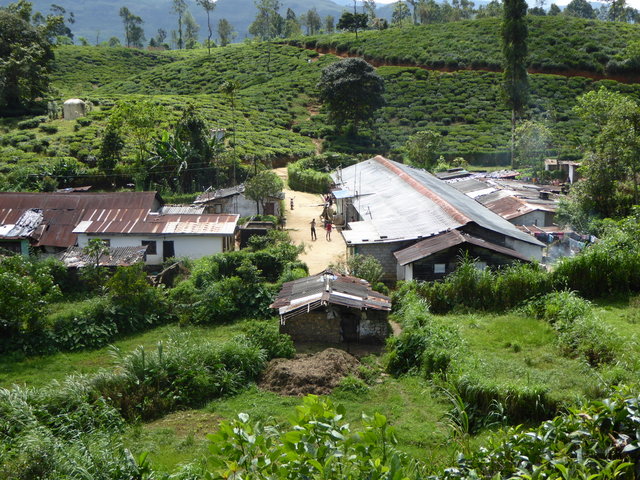Get Involved
Women's Home Gardens
Country: |
Sri Lanka |
Region: |
Hatton |
Project Partner: |
Penn Wimochana Gnanodayam |
Target Group: |
Women and families on 5 tea estates |
Funding Term: |
2015-2019 |
Project Objectives
- To promote and improve nutrition and health of women and family members through home gardening
- To encourage families to cultivate seasonal crops that grow well in the region for home consumption and bartering
- assist women to learn new techniques and methods to enhance their knowledge and maximise their produce/products
- increase the sense of personal power to make positive change in one’s life
Why is this project needed?
In the 19th century, the British brought tea plantation workers from southern India (Tamils) as indentured labourers. Most of their descendants are still living in the line rooms built for them at that time which are owned by the plantations. Today most families still live in one room and a kitchen. Most of the tea plantations lack basic amenities including running water, electricity and transport. Estates are often very isolated in hilly areas with poor roads and little access to transport.
The tea plantation workers make up a large proportion of those living in poverty in Sri Lanka. They have low literacy levels in a country with good literacy rates. Their low income levels make it almost impossible for women tea estate workers to make lasting changes in their lives. In addition, their low income levels mean low levels of savings, hence they remain trapped in the cycle of debt and poverty. A large number of the estate community, especially the children and women, are malnourished.
In order to improve the nutritional needs of the plantation community the PWG home garden initiative empowers women to feed their families with home-grown organic food crops and promote and improve nutrition and health of women and family members through home gardening.
What will the funding provide?
- Weekly estate visits by the fieldworker (a former tea worker with expertise in organic gardening) to facilitate women's group to discuss progress, distribute seeds, share knowledge, encourage progress, and deal with challenges that arise.
- Monthly training activities for participants.
- The wage for 1 woman to attend training at the PWG Centre in home gardening.
- Providing participants with basic needs such as: quality seeds, healthy vegetable plants and gardening tools.
- assisting participants to find traditional chemical free pesticides
- training participants to make their own compost bins and to use animal manure for fertiliser.
What are the project’s expected outcomes?
|
Expected Outcomes |
How will Success be Measured |
|
Improved nutrition and health of women and family members |
6 monthly health checks from the health officer to measure nutrition and health. |
|
Women learn new techniques and methods
|
Baseline interviews with women and then 6 monthly to measure increased knowledge of techniques and methods including:
|
|
Women’s increased sense of personal power to make positive change in their lives.
|
Baseline interviews and then 6 monthly with women and field workers to observe what has been learned, what difference it has made, what needs to change in relation to the WHO 2006 empowerment indicators:
|
How Does our Partner Organisation, PWG, work with the Community?
PWG is a grass roots organisation working in six tea plantations in the Hatton region. Its aim is to enable women in the plantations to understand their reality and encourage, form and train them to be involved in the transformation of their reality. PWG attempts to build up agents of change. The organisation takes seriously the economic and socio political reality of the tea plantation community who are aware of their own oppression, and the economic and socio political reality of the women in particular. These women face a triple if not a quadruple oppression. They are female, daily paid working class and Tamils of the Hill country known as Malaiyaga Thamils (a minority within a minority).
The PWG, whose membership consists of mainly plantation workers, is the first Women’s Organisation in the tea plantations and it began in 1976. It is the only movement committed to tea plantation women and their recognition as decision makers in their society. It is run by women for women. It is one of the first feminist organizations in Sri Lanka.
Why is the project important to Tradewinds?
Tradewinds is supporting this project because it is focused on improving opportunities for families on tea estates by working with communities so that they can help themselves. Tradewinds has partnered with PWG for several decades and has seen the improvements made through their work.





